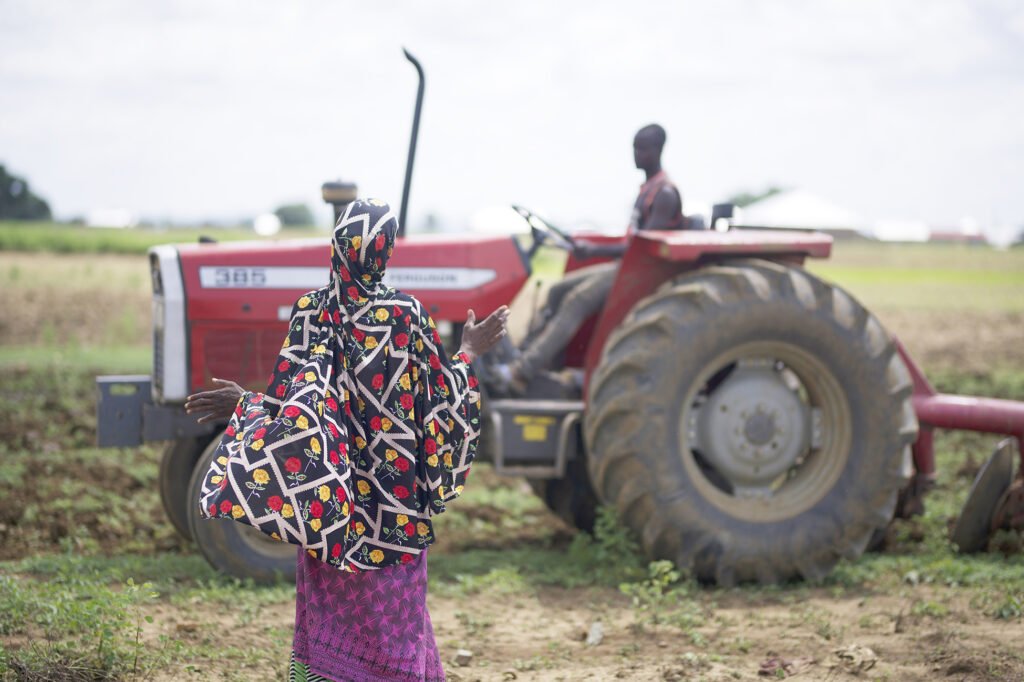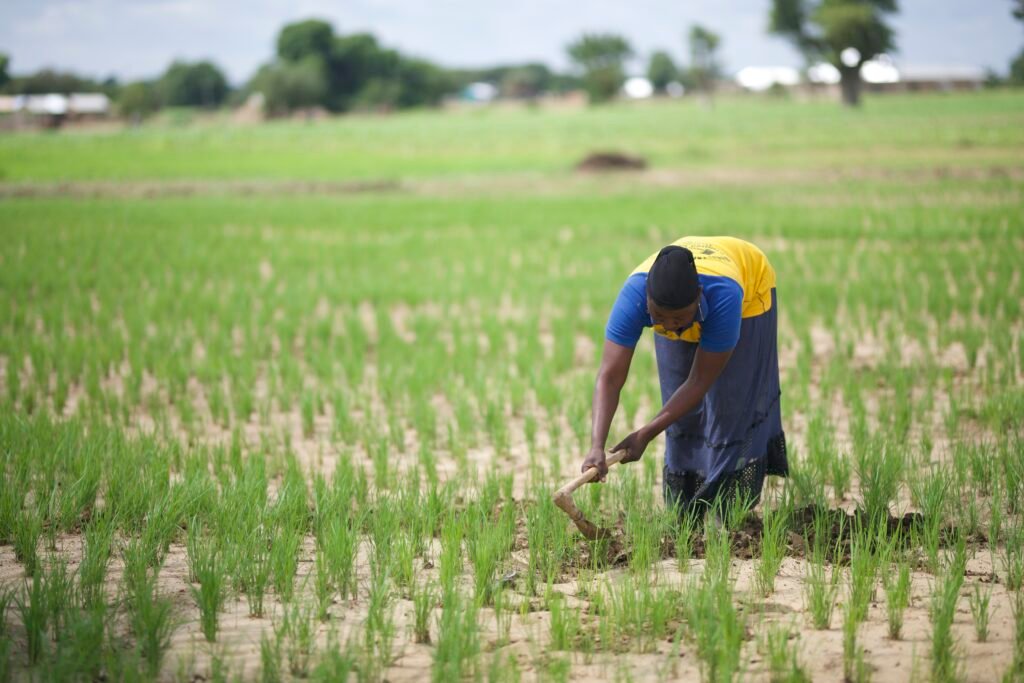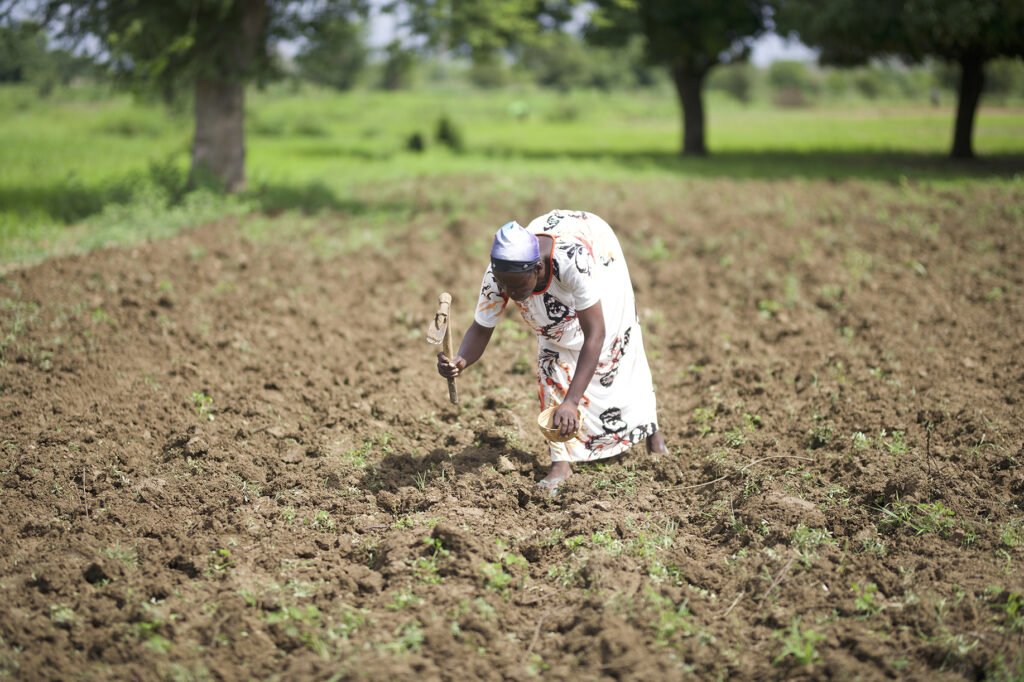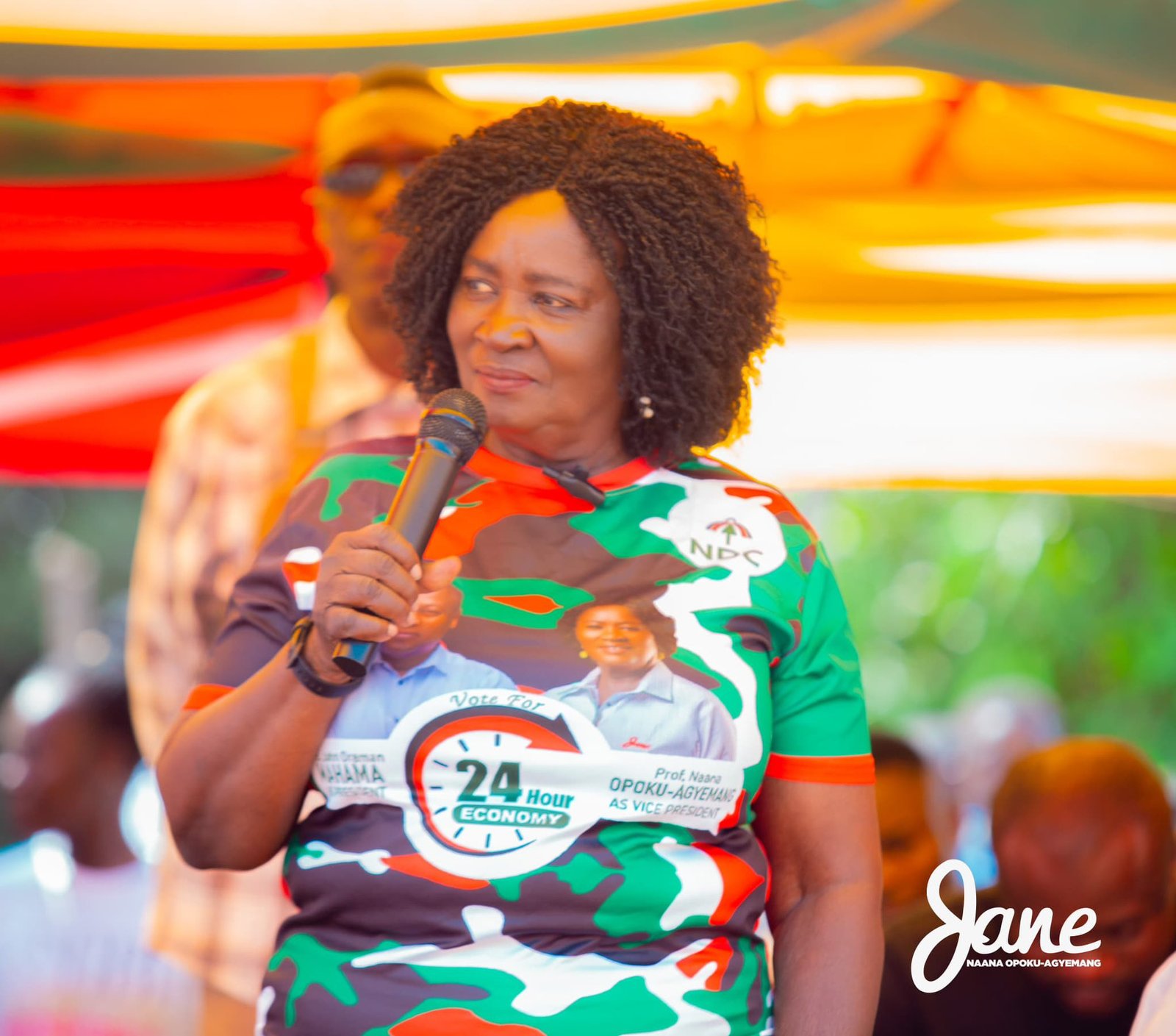Hot!
Women breaking gender inequality in Bawku West

Women working together
Faiza Osman is among many rural women farmers who are matchlessly, producing 70 per cent of Africa’s rice despite the many obstacles they face.
Majority of these smallholder farmers who are into agriculture in Gentiga, in Bawku West in the Upper East Region, continuously break gender disparity, climate change and financial exclusion barriers in order to support their husbands in taking care of their families.

Speaking to Madam Faiza on her farm close to the Red Volta, she said, traditionally, there is a gender productivity gap that mandates women to support their husbands in the morning and work on their personal farms in the evening.
“Due to limited access to land, technology, adaptation, domestic care work and financial support, we end up using our profits from the little farms to take care of the children,” she said.

She said, since majority of the women living in rural communities have no other employment than farming, they were compelled to work harder in order to support the family.

However, whenever there is a training or any financial support, it is the men who are considered first because the women were considered less privileged.
Madam Faiza believes that, if equal opportunities were given to both women and men, the women would produce more to feed the family and the nation as a whole.

Sherifatu Adam, a smallholder farmer in Tumu, urged the government and other agricultural institutions to give women equal opportunities in training, climate change education and financial support in order to expand their farms.
Mr Mahama Salifu, the District Agricultural Director at the East Mamprusi District in the Upper West Region, applauded the contribution of women smallholder farmers in producing to feed the nation.
He said, majority of the staple crops such as maize, rice and millet were produced by the women in smaller quantities but becomes so much when put together.
“With what I have witnessed so far, I believe that with additional support, they would be able to produce more to address food insecurity concerns of the country,” he said.
He said many of these women lack training, financial support as well as access to farmlands which hinder their capacity to produce more.
He commended Non-Governmental Organisations (NGOs) for their role in partnering with the government in the agricultural sector.
From: Geoffrey Buta, Gentiga
Hot!
ASWIM lauds Prof Naana Jane Opoku-Agyemang

The Association of Women in the Media, (ASWIM) has congratulated Professor Naana Jane Opoku-Agyemang on her historic achievement as Ghana’s first female Vice President.
The association said her trailblazing journey with sterling accomplishments from academia to politics, is undoubtedly, a vivid inspiration to countless women and girls across Ghana and Africa.
This was contained in a statement signed by its president, Mrs Mavis Kitcher, and copied to The Spectator on Tuesday in Accra.
“ASWIM celebrates your remarkable career, marked by numerous firsts, including the first female Vice-Chancellor of the University of Cape Coast, (UCC), and the first female to hold a professional chair in Ghana, (UCC),” the statement said.
It said the accomplishments of Prof Opoku- Agyemang were clear testament to the brilliance, resilience and resourceful nature of the complete beautiful African woman.
“As she takes on this new role, ASWIM proudly lauds her commitment to education, women’s empowerment, distinguished public service and patriotism and is very confident that her pursuit of excellence, love for humanity, humility, decency, modesty and commitment to the welfare of the vulnerable will characterise Ghana’s political leadership and public service,” the statement added.
By Jemima Esinam Kuatsinu
Entertainment
Demolition of Fantasy Dome unfair — Mark Okraku-Mantey

Months after the Fantasy Dome was dismantled to make way for construction at the Ghana International Trade Fair site, the Deputy Minister of Tourism, Arts and Culture, Mr Mark Okraku-Mantey, has expressed concern over the manner the facility was destroyed.
In an interview on Daybreak Hitz with Andy Dosty, Mr Okraku-Mantey criticised the handling of the dome’s dismantling, suggesting that it could have been done without causing damage.
“I don’t think that leadership gave instructions that they should do what happened. The structure was a prefab but I hear the people destroyed it. That one, we cannot defend it. It is unfair to him (owner). Sometimes, you give instructions and people will go and do things that will make you look bad,” he stated.
When asked about any punitive measure against the workers responsible for the destruction, Mr Okraku-Mantey clarified that the Trade Fair does not fall under his ministry.
He said he had previously contacted the owner, Leslie Quaynor, to discuss relocating the dome, and even suggested the National Museum as a potential site, though it was too small.
The demolition of the 20,000-seater Fantasy Dome occurred on March 16, 2024.
According to Dr Agnes Adu, CEO of the Ghana Trade Fair Company Limited, the action was taken after multiple notices were given to Quaynor to vacate the premises for redevelopment, as per their tenancy agreement.
Dr Adu noted that all previous tenants had complied except for the Fantasy Dome.
Quaynor, in an interview with JoyNews, confirmed that his lease had ended, and was in the process of relocating the dome.
He had requested an extension, which was denied, leading him to seek a writ and an injunction from an Accra High Court to halt the demolition.
Despite this, the demolition proceeded, causing significant damage to the structure.
Quaynor described the incident as a major setback, not only for his business but also for the entertainment industry, which relies on venues like the Fantasy Dome.



